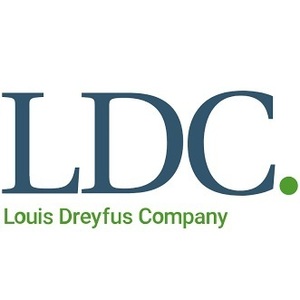Louis Dreyfus successfully completes B30 trial

May 4, 2022
BY Louis Dreyfus Co.
Louis Dreyfus Company B.V. announced on April 29 the successful completion of a biofuel trial carried out in collaboration with Wisby Tanker AB, Sweden (Wisby Tanker) on one of LDC’s upgraded Juice vessels, MV Essayra. The company used a B30 biofuel-blended marine fuel for the first time to sail from LDC’s terminal in Ghent, Belgium, to LDC’s other terminal in Santos, Brazil, and back again with a full cargo of not-from-concentrate and frozen concentrated orange juices, over a 55-day period.
“As part of LDC’s journey to help shape a net-zero economy, we are committed to contributing to shipping industry decarbonization through a range of actions and initiatives – including to explore alternative fuel solutions,” said Sébastien Landerretche, LDC’s global head of freight. “Result of the coordination between LDC’s Carbon Solutions, Freight and Juice platforms, as well as Wisby Tanker, this successful first trial reflects LDC’s ambition and know-how in the field, and our collaborative approach to tackling the industry’s energy transition.”
Advertisement
Advertisement
A variety of tests were conducted throughout the vessel’s voyage to measure the impact of the B30 biofuel blend on the ship’s fuel system and overall performance. The results show that B30 is a practical and cleaner substitute to traditional Very Low Sulphur Fuel Oil (VLSFO), reducing voyage greenhouse gas (GHG) emissions by about 24 percent – i.e. 723 tons of CO2 equivalent (tCO2e).
LDC compensated the remaining 76 percent of GHG emissions of the voyage through carbon credits sourced through its dedicated Carbon Solutions Platform, making this marine shipment the first carbon neutral orange juice shipment globally. For this purpose, LDC chose to retire a total of 2’262 tCO2e of third-party certified carbon credits from the Kariba REDD+ Project, which protects over 785’000 hectares of forest in Zimbabwe, supports local communities and is certified under internationally recognized carbon standards.
Advertisement
Advertisement
In addition to this biofuel trial, LDC is working on a variety of shipping decarbonization projects, leveraging technologies such as wind assisted propulsion, solar, batteries and air lubrication, aiming always to improve vessel efficiency and reduce carbon emissions from its shipping.
Related Stories
The U.S. Energy Information Administration maintained its forecast for 2025 and 2026 biodiesel, renewable diesel and sustainable aviation fuel (SAF) production in its latest Short-Term Energy Outlook, released July 8.
XCF Global Inc. on July 10 shared its strategic plan to invest close to $1 billion in developing a network of SAF production facilities, expanding its U.S. footprint, and advancing its international growth strategy.
U.S. fuel ethanol capacity fell slightly in April, while biodiesel and renewable diesel capacity held steady, according to data released by the U.S. EIA on June 30. Feedstock consumption was down when compared to the previous month.
XCF Global Inc. on July 8 provided a production update on its flagship New Rise Reno facility, underscoring that the plant has successfully produced SAF, renewable diesel, and renewable naphtha during its initial ramp-up.
The USDA’s Risk Management Agency is implementing multiple changes to the Camelina pilot insurance program for the 2026 and succeeding crop years. The changes will expand coverage options and provide greater flexibility for producers.
Upcoming Events










